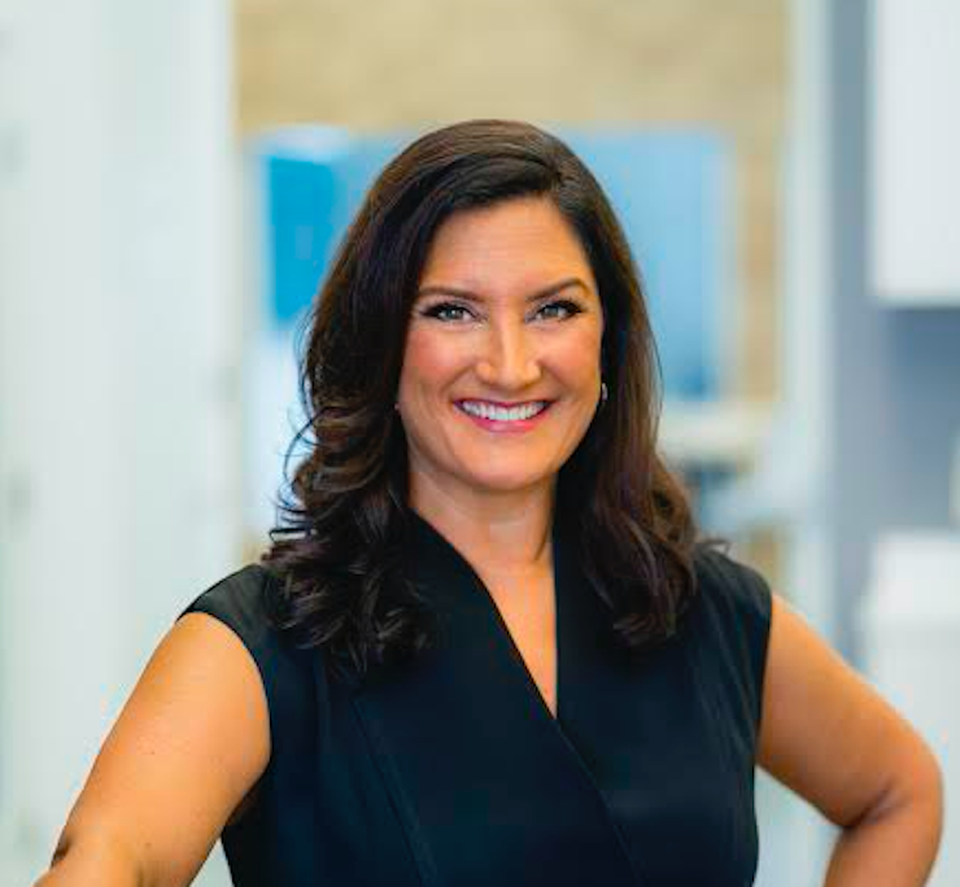There is immense pressure to have work-life balance, especially as a parent. But there is no such thing as a perfect equilibrium and struggling to ‘have it all’ all at once may be an unrealistic goal. Elisa Steele, the CEO of the human resources platform Namely, found a strategy that worked for her family.
“It’s impossible to be excellent at everything all the time. In each day, in each moment, I make decisions about what’s important and where I need to focus my attention. This is where I find the most satisfaction and ability to bring my best self forward,” she says. “It’s liberating to give up finding ‘balance.’ In fact, when I was seeking balance all the time, I just felt like a constant failure! There is no perfect balance — it’s just life. It’s dynamic and demanding and fluid and forgiving,” Steele adds. I spoke to Steele about her career path and advice.

You’ve worked in tech throughout most of your career and have held senior leadership positions at multiple companies. How did the skills you learned in your previous roles contribute to your success at Namely?
I’ve been in the tech sector my entire career and targeted to work at companies that believed in the power of connecting people with technology to build something special. Whether it was millions of Java developers, hundreds of millions of Yahoo! consumers, communities, and teams collaborating at Jive or connecting important relationships at Skype — I’ve been at the heart of joining tech innovation with the human factor. I am fascinated by the power of bringing people together with tech, even when people are physically apart for both work and life.
My role at Namely is a natural extension of all of this. Our mission is to build better workplaces, and work is such an important part of all of our lives. We derive sustenance, fulfillment, meaning, and identity from work. At Namely, we’re innovating to build an all-in-one human resources platform that people actually love to use. We have been disrupting a multi-billion dollar market and that’s exciting!
Namely focuses on leadership and human capital. What are three tenants of your leadership philosophy?
First, do your homework! It’s always best to be prepared and show up with a point of view. Do your research, read the briefs, study the market, collaborate with others, and bring your unique point of view to the discussion. I value leaders who bring analysis and insights that are contextualized in the market dynamics. It’s in this preparation that you can participate and contribute best.
Second, foster every kind of diversity — especially the diversity of thought. Create an inclusive environment that welcomes all perspectives. It’s about more than gender and background, although these are also critically important. It’s about creating a workplace where diversity of skill set and management styles is welcomed. Fostering every kind of diversity means welcoming points of view that challenge your own — and creating the space for honest, healthy, respectful debate to happen.
Third, nurture individual excellence and celebrate teamwork. Each of us, as individuals, is capable of excellence, and we all want to be in an environment that nurtures it. But a company’s potential cannot be achieved through the work of individuals alone. It’s through teamwork and collaboration that potential is realized and greatness is achieved!
What are the most important characteristics someone needs to have to be successful in your role?
Empathy. When a problem lands on a CEO’s desk, that generally means that a lot of very smart people have already spent a lot of time trying to untangle the situation. The people coming to your table have typically been through a lot of friction and conflict. They are surfacing the problem to you because they were unable to resolve the situation themselves. There’s frustration in the system. I have found that empathy is one of the most potent tools available in diffusing it. Empathy helps all parties see one another in a new light. When a leader is an active listener and listens with empathy, it allows the very smart people who’ve come forward to become more empathetic to one another — and to ultimately find paths to solutions together.
What’s the biggest lesson you learned at work and how did you learn it?
When I was 28 years old, there was a key management job I set my sights on in a very big company. It was a serious stretch opportunity for me, and there were three other candidates who were significantly more experienced and older than I was. I didn’t think I had a shot in hell, but I went for it and (uh-oh!), I got it! Once in, I saw the scope of what needed to be done more clearly: The challenges facing the role were especially steep. I realized I got the job because they needed someone different and someone to drive real change. I was scared and nervous, but I said, “Let’s get down to business and get things done together that we can be proud of.” It was one of the most challenging assignments in my career but also one of the most satisfying.
What is one thing that you wish you had known when you were starting out your career?
I’m a big believer that you make things happen for yourself, for your team, for your colleagues, and for your family. You make things happen in life. I grew up with the philosophy, “Work hard, do the right thing and the right things will happen.” But that’s not really the way the world works. “Work hard, do the right thing, and make things happen” is my version. Take a proactive stance. I am always inclined to action.
What is the best advice you’ve ever received?
Don’t let criticism bring you down. Examine it. Learn from it. Grow from it. But don’t let it shake you or keep you from going forward.































